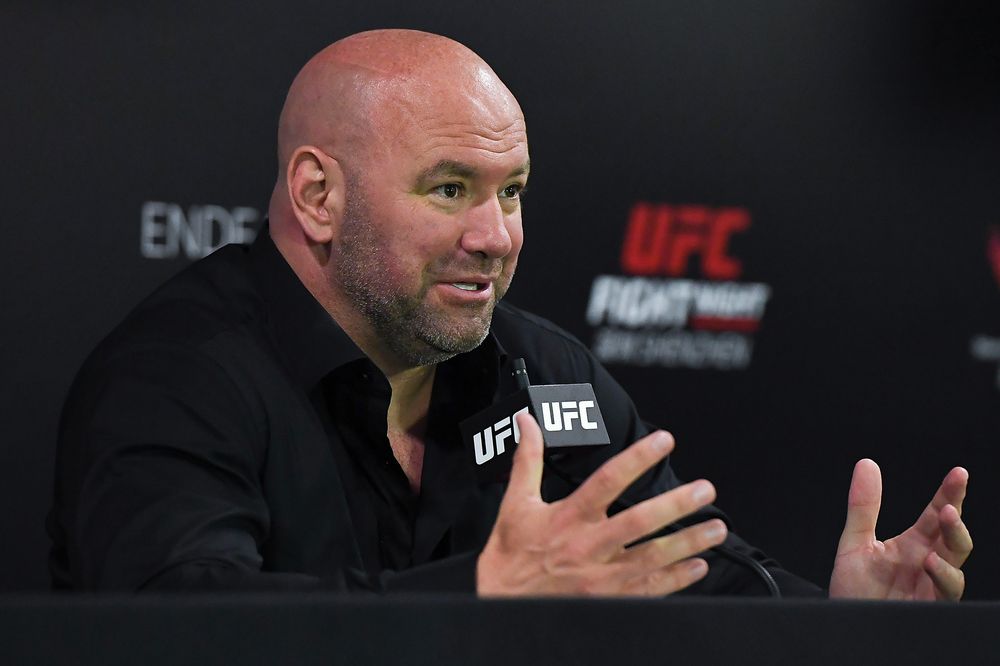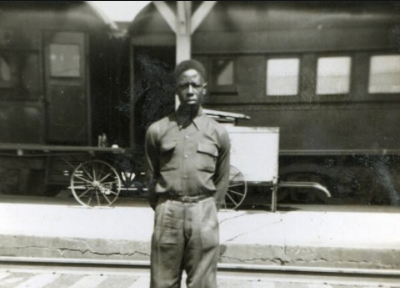
When the UFC moved forward with live events during the pandemic, Dana White was called "reckless" & "irresponsible."
His response?
“I don’t give a f**k.”
But did he really even have a choice?
Time for a thread 👇👇👇
His response?
“I don’t give a f**k.”
But did he really even have a choice?
Time for a thread 👇👇👇

1) First, some background...
On March 11th, the NBA season came to a halt following Jazz center Rudy Gobert testing positive for COVID-19.
On May 9th, just 2 months after the NBA shut down, the UFC returned to action with UFC 249 in Jacksonville, FL.
The response?
Not great.
On March 11th, the NBA season came to a halt following Jazz center Rudy Gobert testing positive for COVID-19.
On May 9th, just 2 months after the NBA shut down, the UFC returned to action with UFC 249 in Jacksonville, FL.
The response?
Not great.

2) When Dana White announced the UFC would be the first sports organization globally to return to action, the media freaked out.
He was called "reckless," "irresponsible," and "somebody with a flawed intelligence."
But did he even have a choice?
Let's run through it…
He was called "reckless," "irresponsible," and "somebody with a flawed intelligence."
But did he even have a choice?
Let's run through it…
3) For those who don't already know, the UFC was bought by Endeavor and private-equity firms KKR & Silver Lake in 2016.
The price?
$4 billion, which represented the largest sports asset sale of all-time when it happened.
Even more interesting?
What has happened since.
The price?
$4 billion, which represented the largest sports asset sale of all-time when it happened.
Even more interesting?
What has happened since.

4) Since being acquired for $4B in 2016, the UFC has taken on over $2B of debt — some of which spent time trading at distressed levels in the secondary market.
Their response?
A massive 5-year, $1.5 billion media deal with ESPN, which brings in $300M+ annually.
Their response?
A massive 5-year, $1.5 billion media deal with ESPN, which brings in $300M+ annually.
5) Through their agreement with ESPN, the UFC is contractually obligated to provide 42 live events each year.
The only problem?
When COVID-19 hit, they had only completed seven.
The only problem?
When COVID-19 hit, they had only completed seven.

6) Furthermore, before COVID-19, Endeavor — a company built on live events — carried $4.6B in debt & canceled its IPO.
Even worse, they have furloughed, laid off, or cut pay for 1/3 of their 7,500 employees since the pandemic began.
So was it all about money?
Well, not quite.
Even worse, they have furloughed, laid off, or cut pay for 1/3 of their 7,500 employees since the pandemic began.
So was it all about money?
Well, not quite.
7) Endeavor has enough cash to pay its debt service obligations for years and can always access capital markets to stay solvent.
As for ESPN, It's unlikely they would cancel a 5-7 year relationship, which has netted millions of ESPN+ subs, due to a once-in-a-lifetime pandemic.
As for ESPN, It's unlikely they would cancel a 5-7 year relationship, which has netted millions of ESPN+ subs, due to a once-in-a-lifetime pandemic.
8) The good news?
By putting on live events, the UFC was able to make good on their ESPN contract & receive their $300M+.
It also prevented them from firing or furloughing employees and allowed their fighters to earn a paycheck — which they wouldn’t have done without fighting.
By putting on live events, the UFC was able to make good on their ESPN contract & receive their $300M+.
It also prevented them from firing or furloughing employees and allowed their fighters to earn a paycheck — which they wouldn’t have done without fighting.
9) Even more interesting, the UFC dominated in its return.
— Record pay-per-view buys
— Viewership was up 33% YoY
— Record 2.5B views on YouTube
— Social accounts reached 152M, up 62%
In total, the UFC spent $17M on 28,000+ COVID-19 tests and had a positivity rate below 1%.
— Record pay-per-view buys
— Viewership was up 33% YoY
— Record 2.5B views on YouTube
— Social accounts reached 152M, up 62%
In total, the UFC spent $17M on 28,000+ COVID-19 tests and had a positivity rate below 1%.

10) Here's the best part:
While sports leagues & teams worldwide trimmed their workforce throughout the COVID-19 pandemic, not a single UFC employee was fired, furloughed, or saw their pay reduced.
Whether you like him or not, Dana White deserves a lot of credit for that.
While sports leagues & teams worldwide trimmed their workforce throughout the COVID-19 pandemic, not a single UFC employee was fired, furloughed, or saw their pay reduced.
Whether you like him or not, Dana White deserves a lot of credit for that.
11) In the end, there are peace-time CEO’s and war-time CEO’s.
People will debate the details of Dana White and the UFC’s decisions, but one thing is clear:
Dana White moved with a violence of action when confronted with a global pandemic.
People will debate the details of Dana White and the UFC’s decisions, but one thing is clear:
Dana White moved with a violence of action when confronted with a global pandemic.
12) This is part of the reason why UFC fans adore him.
Dana White doesn’t care what the media thinks about him; he just does what is in the best interest of the multi-billion-dollar company he represents.
It’s hard not to respect that.
Dana White doesn’t care what the media thinks about him; he just does what is in the best interest of the multi-billion-dollar company he represents.
It’s hard not to respect that.

13) If you enjoyed this thread, you should:
1. Follow me, I tweet cool sports business stories every day.
2. Subscribe to my free daily newsletter where I give a detailed analysis on topics involving the money and business behind sports.
readhuddleup.com
1. Follow me, I tweet cool sports business stories every day.
2. Subscribe to my free daily newsletter where I give a detailed analysis on topics involving the money and business behind sports.
readhuddleup.com
Also, don't forget @AthleticBrewing is the reason I'm able to create sports business content full-time.
If you want to support me, buy some beer - it's really great stuff.
Use code "JOE25" for 25% off at athleticbrewing.com
If you want to support me, buy some beer - it's really great stuff.
Use code "JOE25" for 25% off at athleticbrewing.com
• • •
Missing some Tweet in this thread? You can try to
force a refresh









